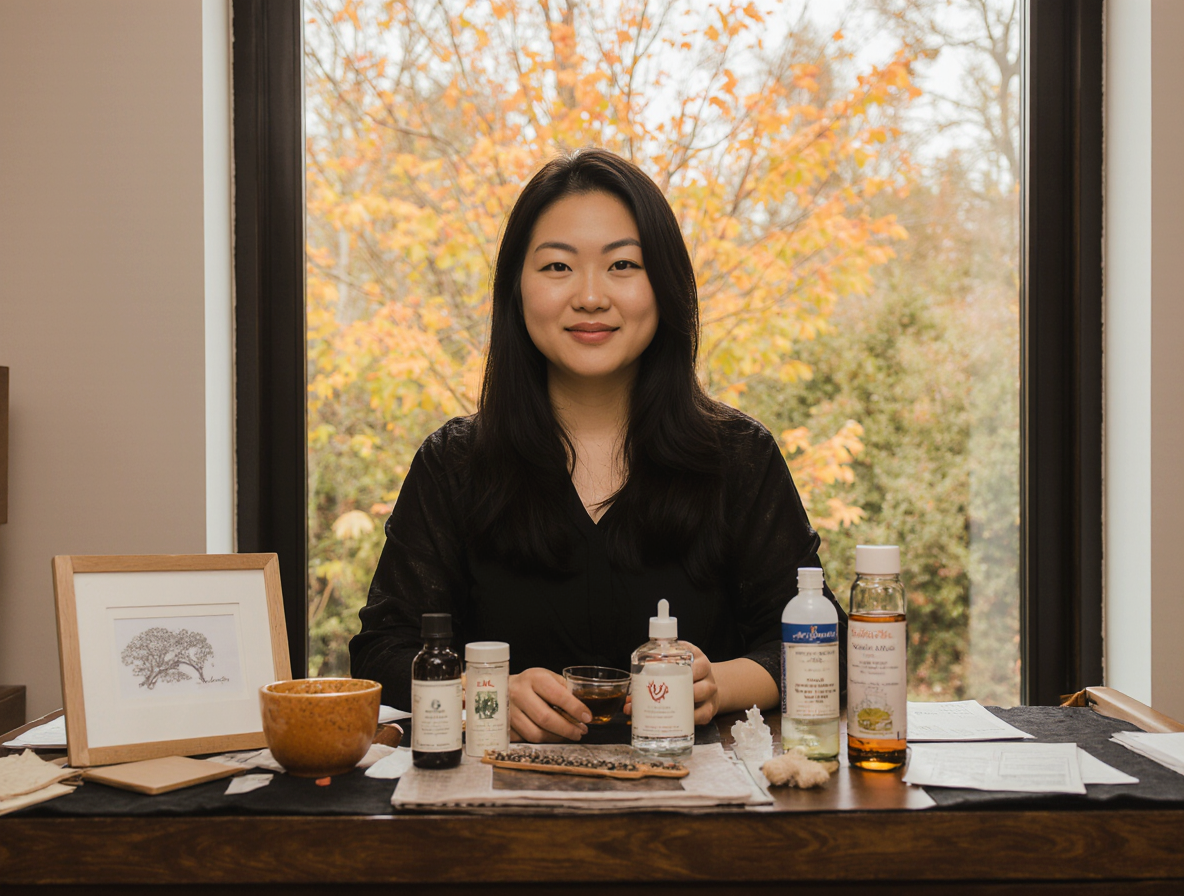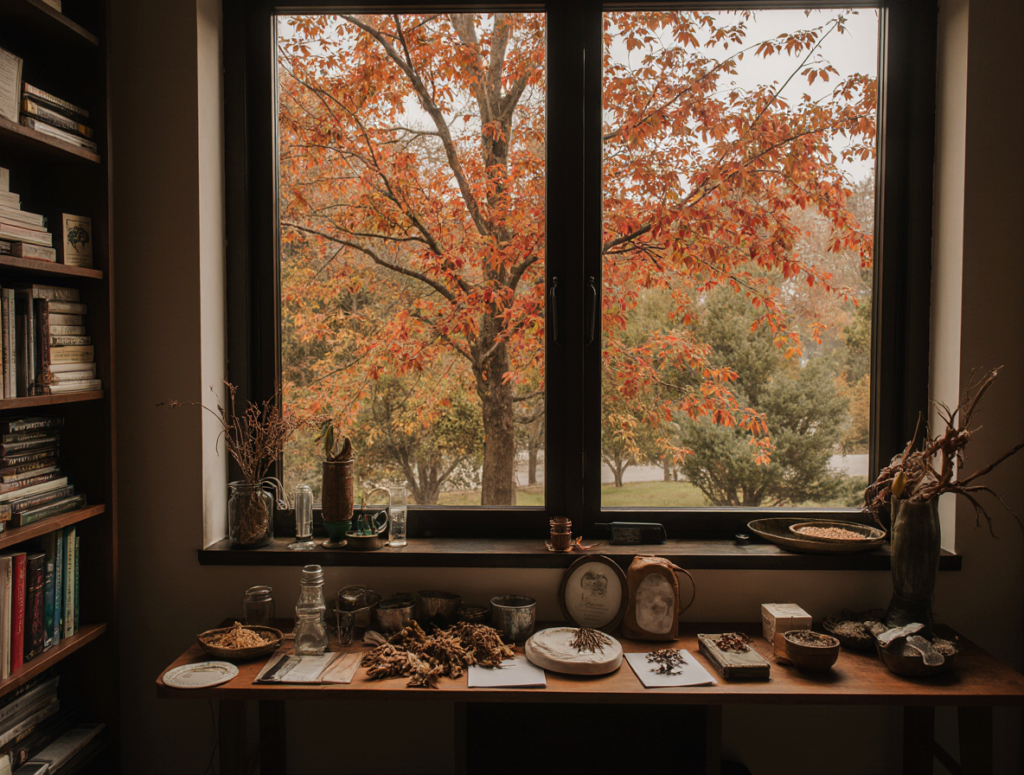Seasonal Health Hacks From Traditional Chinese Medicine Clinic In Toronto
By: Daoyi Wellness
Seasonal living has been part of Traditional Chinese Medicine (TCM) for thousands of years. This philosophy teaches that humans are deeply connected to the rhythms of nature and that aligning with seasonal shifts supports stronger immunity, better digestion, and improved mental balance.
In Canada, where the seasons are extreme and distinct, applying these principles can bring noticeable benefits to daily life.
Understanding Seasonal Living In TCM
In TCM, health is seen as a dynamic balance between Yin and Yang—opposing yet complementary forces that shift with the seasons. Each of the Five Elements (Wood, Fire, Earth, Metal, and Water) corresponds to a season and a set of organs.
By living in harmony with these cycles, we can prevent illness before it develops.
Modern science backs this up. Research on circadian and seasonal biology shows that human immune systems, energy levels, and even mood shift throughout the year. For example, a study from the University of Cambridge found that nearly 5,000 genes fluctuate in activity depending on the season, affecting immunity and metabolism (Dopico et al., Nature Communications, 2015).
Spring Health Hacks From Traditional Chinese Medicine
Spring is linked to the Wood Element, with the liver and gallbladder as its primary organs. It is a season of renewal, growth, and movement.
- Foods: Fresh leafy greens, sprouts, asparagus, and citrus fruits help cleanse the liver. Sour flavours like lemon aid detoxification.
- Practices: Gentle stretching, yoga, or tai chi support flexibility and liver energy. Spending time outdoors helps shake off winter stagnation.
- Acupressure Point: Liver 3 (Tai Chong), found on the top of the foot, is excellent for relieving stress and promoting flow.
- Mental Health: Spring is a time for creativity and new beginnings but can also stir up frustration if energy is blocked.
- Modern Science Parallel: Seasonal allergies are more common in spring, and diet rich in anti-inflammatory foods like greens and omega-3s can reduce symptoms.
Summer Health Hacks From Traditional Chinese Medicine
Summer corresponds to the Fire Element, governing the heart and small intestine. It represents warmth, joy, and connection.
- Foods: Cooling foods like watermelon, cucumber, mint, and fresh berries help regulate body heat.
- Practices: Breathwork, swimming, and meditation encourage relaxation and joy. Staying hydrated is critical.
- Acupressure Point: Pericardium 6 (Nei Guan), located on the inner wrist, helps with nausea and calming heat-related stress.
- Mental Health: Summer is associated with passion and connection, but overexertion can lead to burnout.
- Modern Evidence: According to Health Canada, extreme heat events are becoming more frequent, and heat-related illnesses disproportionately affect vulnerable populations, including seniors and those with cardiovascular conditions.
Late Summer Health Hacks From Traditional Chinese Medicine
In TCM, late summer is a transitional season ruled by the Earth Element, focusing on the spleen and stomach.
- Foods: Grounding foods such as squash, millet, yams, and root vegetables strengthen digestion.
- Practices: Practising mindful eating and reducing processed sugars support spleen function.
- Acupressure Point: Stomach 36 (Zu San Li), just below the knee, is known as the “longevity point” and boosts energy and immunity.
- Mental Health: This season is about stability, nurturing, and centredness.
- Modern Science: Gut microbiome research highlights the role of fibre-rich whole foods in supporting immunity and reducing inflammation.
Autumn Health Hacks From Traditional Chinese Medicine
Autumn belongs to the Metal Element, ruling the lungs and large intestine. It is a season of harvest, reflection, and letting go.
- Foods: Pears, apples, garlic, ginger, onions, and radish moisten and strengthen the lungs.
- Practices: Deep breathing exercises, journaling, and decluttering rituals reflect the lung’s role in letting go.
- Acupressure Point: Lung 7 (Lie Que) boosts immunity and supports respiratory health.
- Mental Health: Autumn often brings grief or melancholy, but it also supports inner strength.
- Modern Evidence: In Canada, influenza activity typically peaks between late fall and early winter. Strengthening lung health naturally can reduce vulnerability.
Winter Health Hacks From Traditional Chinese Medicine
Winter is tied to the Water Element, which supports the kidneys and bladder. This is a season of rest, reflection, and conservation.
- Foods: Black beans, walnuts, seaweed, lamb, and hearty soups provide warmth and nourishment.
- Practices: Prioritise sleep, practise gentle meditation, and enjoy warming teas like ginger or cinnamon.
- Acupressure Point: Kidney 3 (Tai Xi), near the ankle, enhances vitality and supports kidney function.
- Mental Health: Winter invites introspection and stillness but can also bring fatigue.
- Modern Evidence: Seasonal Affective Disorder (SAD) affects 2–3% of Canadians severely, with 15% experiencing milder symptoms, according to the Canadian Mental Health Association. Vitamin D supplementation and light therapy are often recommended.
Integrating TCM With Modern Canadian Lifestyle
Adapting TCM in Canada requires flexibility due to the extreme climate. While local growing seasons are short, seasonal eating can be supported with farmers’ markets, frozen produce, and preserved foods.
Urban dwellers can adapt practices with indoor tai chi, breathwork, or even balcony gardening. Combining modern wellness science with TCM’s timeless practices allows Canadians to live in better harmony with their environment.
Conclusion
Seasonal living through TCM offers a roadmap for better immunity, energy, and emotional well-being. By incorporating small seasonal shifts—such as adjusting diet, adding acupressure, or aligning routines with natural cycles—Canadians can thrive in all four seasons.
FAQs
What Is Seasonal Living In TCM?
It is the practice of aligning diet, lifestyle, and emotions with seasonal changes to maintain balance and prevent illness.
Which Foods Support Spring Cleansing?
Leafy greens, sprouts, and sour foods like lemons and vinegar help detoxify the liver in spring.
How Can I Stay Cool In The Summer Naturally?
Eating cooling foods such as watermelon and cucumber, staying hydrated, and practising breathwork can reduce heat stress.
What Is The Importance Of The Spleen In Late Summer?
The spleen plays a central role in digestion and energy. Supporting it with grounding foods like squash and millet enhances vitality.
How Can I Boost My Lung Health In Autumn?
Incorporating pears, garlic, and ginger, along with deep breathing exercises, strengthens lung function and immunity.
What TCM Tips Help With Winter Fatigue?
Warming foods, acupressure on Kidney 3, and prioritising rest help restore energy during winter.
Can Seasonal TCM Hacks Help With Allergies?
Yes. Adjusting diet, reducing inflammatory foods, and using acupressure points like Liver 3 may lessen seasonal allergy symptoms.
Is There Scientific Support For TCM Seasonal Living?
Studies show seasonal variations affect immunity, hormones, and gene expression, supporting TCM’s principles of seasonal adaptation.
How Do Canadians Adapt TCM To Harsh Winters?
Through warming foods, vitamin D supplementation, and energy-conserving practices like meditation and rest.
Are There Safe Home Practices Without Needles?
Yes. Acupressure, breathwork, herbal teas, and seasonal diet adjustments are effective entry points without acupuncture needles.
If you have any questions about our article “Seasonal Health Hacks From Traditional Chinese Medicine” or need traditional Chinese medicine near Toronto contact us at info@daoyiwellness.com.


